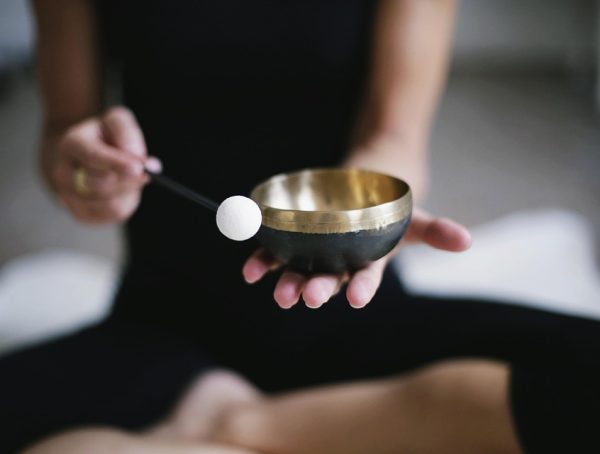Mindfulness Meditation: A Natural Remedy for Stress Relief
In today’s fast-paced world, where pressures of work, family, and social obligations often collide, stress has become an unwelcome but constant companion. Many seek relief through various methods—some effective, others less so. In recent years, mindfulness meditation has emerged as a powerful, natural remedy for managing stress and fostering emotional well-being. This article explores what mindfulness meditation is, how it can alleviate stress, and offers actionable steps for integrating it into your daily routine.
Understanding Mindfulness Meditation
At its core, mindfulness meditation involves paying attention to the present moment in a nonjudgmental way. Derived from ancient Buddhist practices, it encourages awareness of thoughts, feelings, and sensations as they arise, without getting caught up in them. Unlike traditional meditation practices that may focus on emptying the mind, mindfulness teaches individuals to embrace their experiences, allowing them to be present without overwhelming emotional responses.
The Science Behind Mindfulness Meditation and Stress Reduction
Research shows that mindfulness meditation can hijack the stress response triggered by life’s challenges. A study led by neuroscientists at Harvard University found that participating in an eight-week mindfulness-based stress reduction program led to measurable changes in gray matter density. Improved brain areas include those related to self-awareness, compassion, and emotion regulation, indicating a psychological shift towards peace and well-being.
Another study published in the Journal of the American Medical Association demonstrated that mindfulness meditation significantly reduces symptoms of anxiety, depression, and pain, emphasizing its role as a holistic approach to health. Moreover, it enhances resilience, enabling individuals to handle stress more effectively.
Benefits of Mindfulness Meditation for Stress Relief
-
Reduced Stress Levels: Regular mindfulness meditation practice diminishes the body’s stress response, lowering cortisol levels—often referred to as the ‘stress hormone.’ This reduction aids in keeping the fight-or-flight response in check.
-
Enhanced Emotional Resilience: By fostering a deeper understanding and acceptance of one’s thoughts and emotions, mindfulness aids in reducing negative thought patterns and cultivating a more resilient mindset.
-
Improved Focus and Concentration: Mindfulness meditation encourages sustained attention and improves cognitive flexibility, so you can better manage stressors in your environment.
-
Better Sleep Quality: Practicing mindfulness meditation can also lead to improved sleep quality. It helps in quieting the mind, making it easier to drift off into a restful sleep, essential for stress recovery.
- Healthier Relationships: Increased awareness of emotional reactions helps in developing compassion and empathy, enhancing personal and professional relationships. This supportive environment also contributes to stress reduction.
Action Steps to Integrate Mindfulness Meditation into Your Life
If you’re interested in exploring mindfulness meditation as a method for stress relief, here are some actionable steps to get you started:
1. Set Aside Time for Daily Practice:
Start with just 5–10 minutes each day. As you become more comfortable, gradually increase the time to 20 or 30 minutes. Early morning or before bed works best for many, but find a time that fits your schedule.
2. Create a Cozy Space:
Choose a quiet spot in your home where you can sit or lie down comfortably. This space should be free of distractions. You can set up a cushion or mat and add calming elements like soft lighting or scented candles.
3. Focus on Your Breath:
Close your eyes and begin to focus on your breath. Inhale deeply through your nose, feeling your abdomen expand, and exhale slowly through your mouth. If your mind wanders, gently bring your focus back to your breath without judgment.
4. Utilize Guided Meditations:
If you’re unsure where to begin, use guided meditations available through apps like Calm, Headspace, or Insight Timer. These resources offer various sessions designed for stress relief, relaxation, and mindfulness.
5. Incorporate Mindfulness into Daily Activities:
Beyond formal meditation, practice mindfulness during everyday activities. Whether you eat, walk, or wash dishes, focus entirely on the sensations and experiences rather than letting your mind drift.
6. Journaling:
After your meditation, take a few minutes to journal about your experience. Note any feelings, thoughts, or sensations that arose. This practice helps deepen your understanding of yourself and reinforces the principles of mindfulness.
7. Stay Patient and Consistent:
Like any new skill, mindfulness meditation takes practice. Be patient with yourself, and remember that there’s no ‘right’ way to meditate. Consistency is key—make it a part of your daily routine.
8. Connect with Others:
Consider joining a local or online mindfulness meditation group. Sharing experiences can enhance your practice, introduce new techniques, and provide you with a supportive community.
Conclusion
Incorporating mindfulness meditation into your daily routine can be a transformative experience leading to profound stress relief and emotional well-being. By committing to this practice, not only do you foster a more resilient mindset, but you also cultivate a deeper connection to your thoughts and feelings, enriching your life experience.
As you embark on this journey, remember that every moment holds potential for mindfulness—embrace it. Keep striving for balance and learning, and you’ll find peace amidst chaos.
"Sometimes the most productive thing you can do is relax." — Mark Black
For more insights and uplifting content on well-being and mindfulness, connect with Kevin on Instagram (@KSteineman).
You might also like
More from Meditation
The Role of Mantras in Transcendental Meditation: A Deep Dive
The Role of Mantras in Transcendental Meditation: A Deep Dive Transcendental Meditation (TM) has garnered a significant following across the globe, …
The Science Behind Meditation: Improving Mental Health Naturally
The Science Behind Meditation: Improving Mental Health Naturally In today's fast-paced world, the pursuit of mental wellness has become paramount. Thousands …
Understanding the 7 Types of Meditation for Beginners
Understanding the 7 Types of Meditation for Beginners: A Path to Inner Peace Meditation has become a popular practice in recent …


































